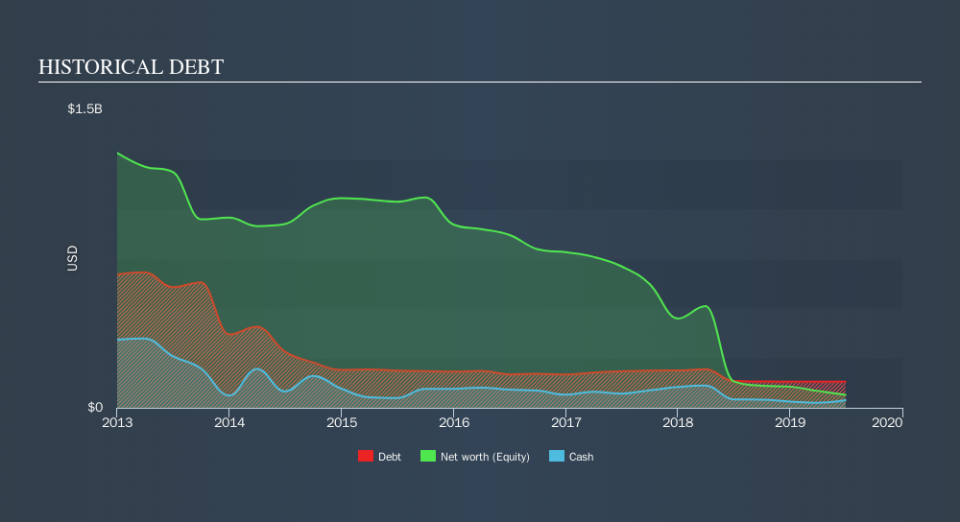Is REC Silicon (OB:REC) Using Debt Sensibly?

Warren Buffett famously said, 'Volatility is far from synonymous with risk.' So it might be obvious that you need to consider debt, when you think about how risky any given stock is, because too much debt can sink a company. We can see that REC Silicon ASA (OB:REC) does use debt in its business. But should shareholders be worried about its use of debt?
When Is Debt A Problem?
Debt is a tool to help businesses grow, but if a business is incapable of paying off its lenders, then it exists at their mercy. Ultimately, if the company can't fulfill its legal obligations to repay debt, shareholders could walk away with nothing. However, a more usual (but still expensive) situation is where a company must dilute shareholders at a cheap share price simply to get debt under control. Of course, the upside of debt is that it often represents cheap capital, especially when it replaces dilution in a company with the ability to reinvest at high rates of return. The first step when considering a company's debt levels is to consider its cash and debt together.
View our latest analysis for REC Silicon
How Much Debt Does REC Silicon Carry?
The chart below, which you can click on for greater detail, shows that REC Silicon had US$132.0m in debt in June 2019; about the same as the year before. On the flip side, it has US$38.4m in cash leading to net debt of about US$93.6m.
How Healthy Is REC Silicon's Balance Sheet?
Zooming in on the latest balance sheet data, we can see that REC Silicon had liabilities of US$126.2m due within 12 months and liabilities of US$174.0m due beyond that. On the other hand, it had cash of US$38.4m and US$42.1m worth of receivables due within a year. So its liabilities outweigh the sum of its cash and (near-term) receivables by US$219.7m.
This deficit casts a shadow over the US$98.4m company, like a colossus towering over mere mortals. So we definitely think shareholders need to watch this one closely. At the end of the day, REC Silicon would probably need a major re-capitalization if its creditors were to demand repayment. The balance sheet is clearly the area to focus on when you are analysing debt. But it is future earnings, more than anything, that will determine REC Silicon's ability to maintain a healthy balance sheet going forward. So if you want to see what the professionals think, you might find this free report on analyst profit forecasts to be interesting.
Over 12 months, REC Silicon made a loss at the EBIT level, and saw its revenue drop to US$185m, which is a fall of 35%. That makes us nervous, to say the least.
Caveat Emptor
Not only did REC Silicon's revenue slip over the last twelve months, but it also produced negative earnings before interest and tax (EBIT). Its EBIT loss was a whopping US$62m. When we look at that alongside the significant liabilities, we're not particularly confident about the company. It would need to improve its operations quickly for us to be interested in it. Not least because it had negative free cash flow of US$20m over the last twelve months. That means it's on the risky side of things. When we look at a riskier company, we like to check how their profits (or losses) are trending over time. Today, we're providing readers this interactive graph showing how REC Silicon's profit, revenue, and operating cashflow have changed over the last few years.
When all is said and done, sometimes its easier to focus on companies that don't even need debt. Readers can access a list of growth stocks with zero net debt 100% free, right now.
We aim to bring you long-term focused research analysis driven by fundamental data. Note that our analysis may not factor in the latest price-sensitive company announcements or qualitative material.
If you spot an error that warrants correction, please contact the editor at editorial-team@simplywallst.com. This article by Simply Wall St is general in nature. It does not constitute a recommendation to buy or sell any stock, and does not take account of your objectives, or your financial situation. Simply Wall St has no position in the stocks mentioned. Thank you for reading.


